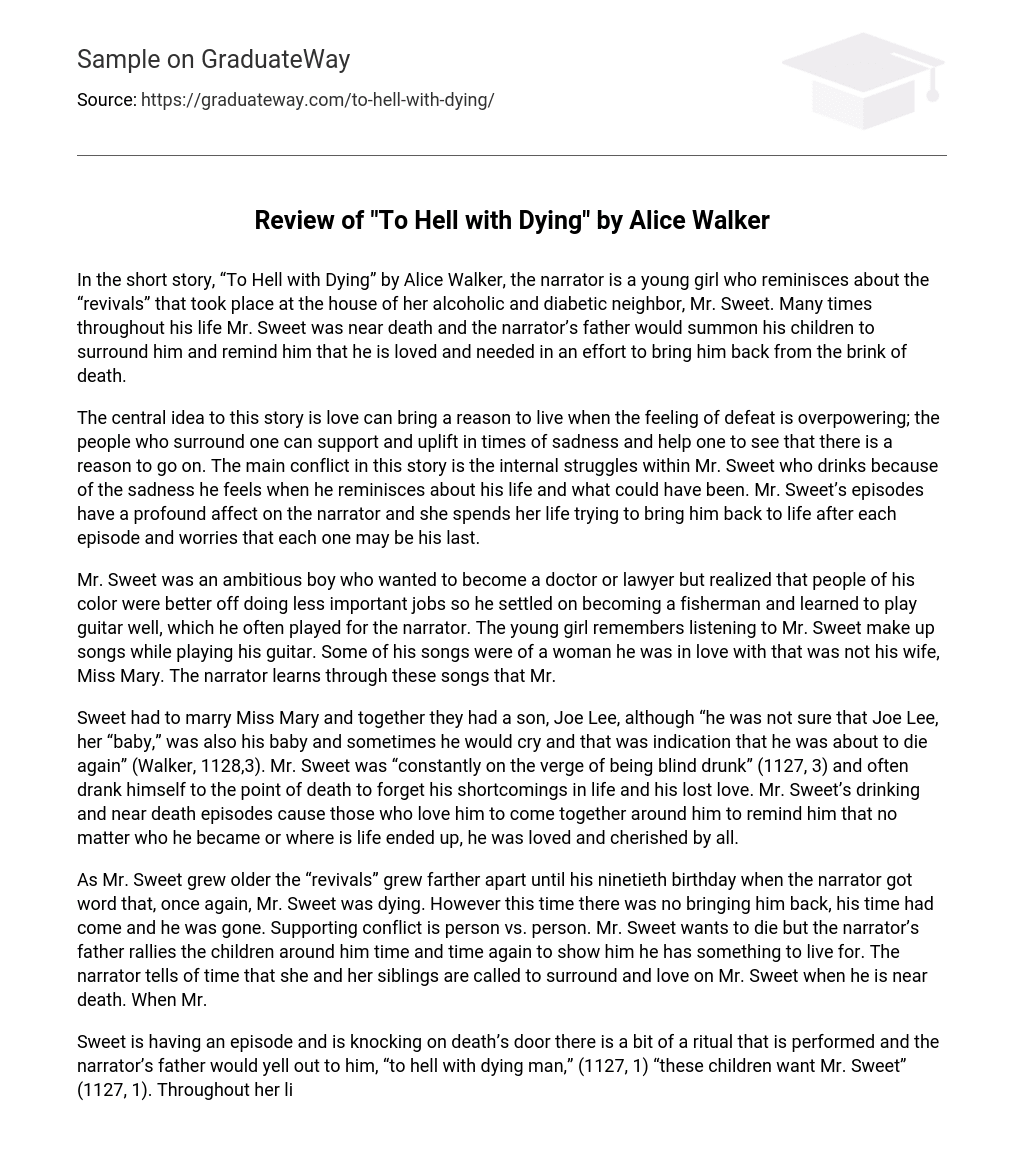In the short story, “To Hell with Dying” by Alice Walker, the narrator is a young girl who reminisces about the “revivals” that took place at the house of her alcoholic and diabetic neighbor, Mr. Sweet. Many times throughout his life Mr. Sweet was near death and the narrator’s father would summon his children to surround him and remind him that he is loved and needed in an effort to bring him back from the brink of death.
The central idea to this story is love can bring a reason to live when the feeling of defeat is overpowering; the people who surround one can support and uplift in times of sadness and help one to see that there is a reason to go on. The main conflict in this story is the internal struggles within Mr. Sweet who drinks because of the sadness he feels when he reminisces about his life and what could have been. Mr. Sweet’s episodes have a profound affect on the narrator and she spends her life trying to bring him back to life after each episode and worries that each one may be his last.
Mr. Sweet was an ambitious boy who wanted to become a doctor or lawyer but realized that people of his color were better off doing less important jobs so he settled on becoming a fisherman and learned to play guitar well, which he often played for the narrator. The young girl remembers listening to Mr. Sweet make up songs while playing his guitar. Some of his songs were of a woman he was in love with that was not his wife, Miss Mary. The narrator learns through these songs that Mr.
Sweet had to marry Miss Mary and together they had a son, Joe Lee, although “he was not sure that Joe Lee, her “baby,” was also his baby and sometimes he would cry and that was indication that he was about to die again” (Walker, 1128,3). Mr. Sweet was “constantly on the verge of being blind drunk” (1127, 3) and often drank himself to the point of death to forget his shortcomings in life and his lost love. Mr. Sweet’s drinking and near death episodes cause those who love him to come together around him to remind him that no matter who he became or where is life ended up, he was loved and cherished by all.
As Mr. Sweet grew older the “revivals” grew farther apart until his ninetieth birthday when the narrator got word that, once again, Mr. Sweet was dying. However this time there was no bringing him back, his time had come and he was gone. Supporting conflict is person vs. person. Mr. Sweet wants to die but the narrator’s father rallies the children around him time and time again to show him he has something to live for. The narrator tells of time that she and her siblings are called to surround and love on Mr. Sweet when he is near death. When Mr.
Sweet is having an episode and is knocking on death’s door there is a bit of a ritual that is performed and the narrator’s father would yell out to him, “to hell with dying man,” (1127, 1) “these children want Mr. Sweet” (1127, 1). Throughout her life the young girl was always, in a sense, on call to be ready at a moment’s notice to rush over to Mr. Sweet’s home to bring him around. In the end, he is well into his nineties and even the children’s love is no longer enough to bring him back. The conflict is resolved with the passing of Mr. Sweet





